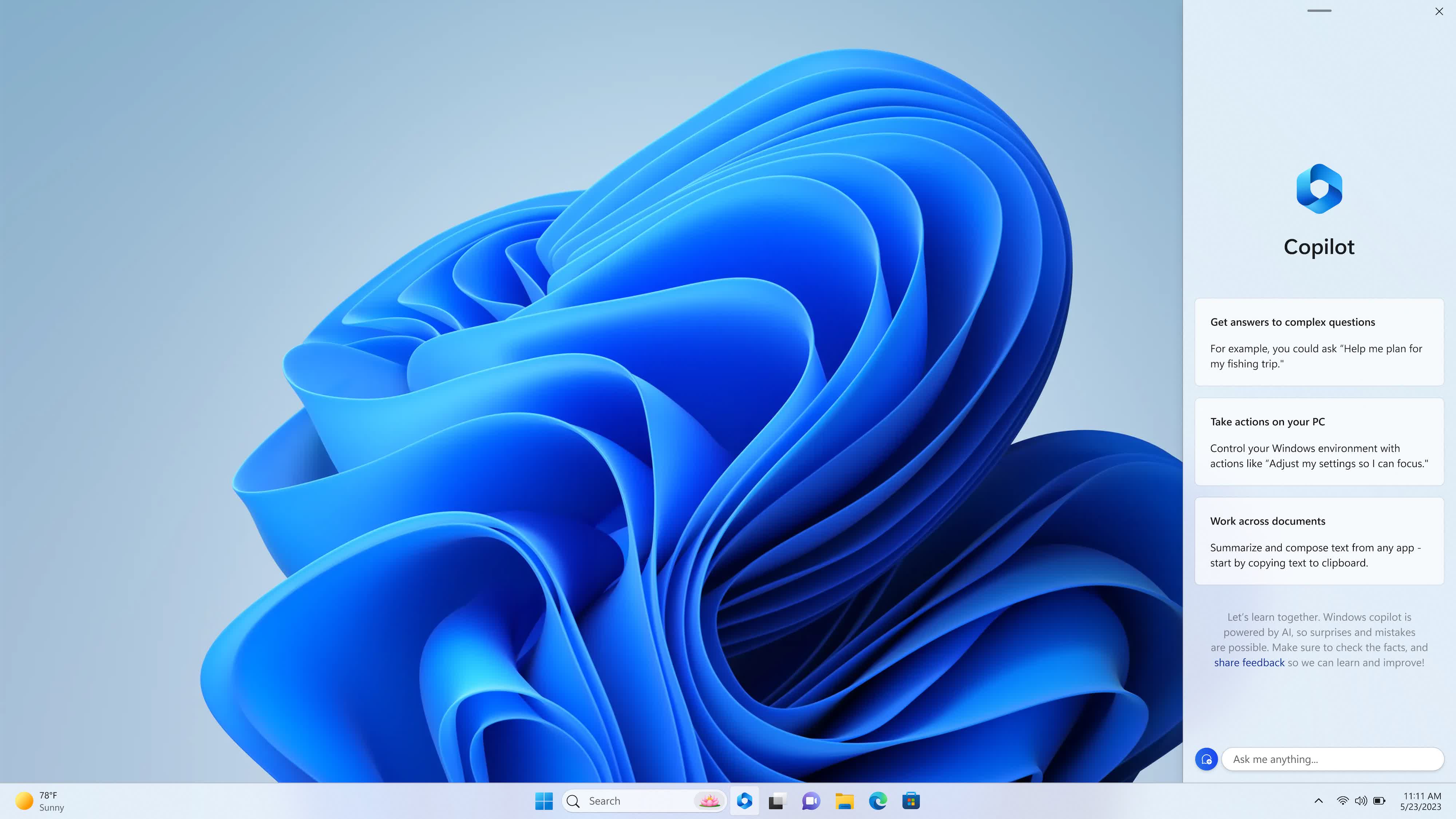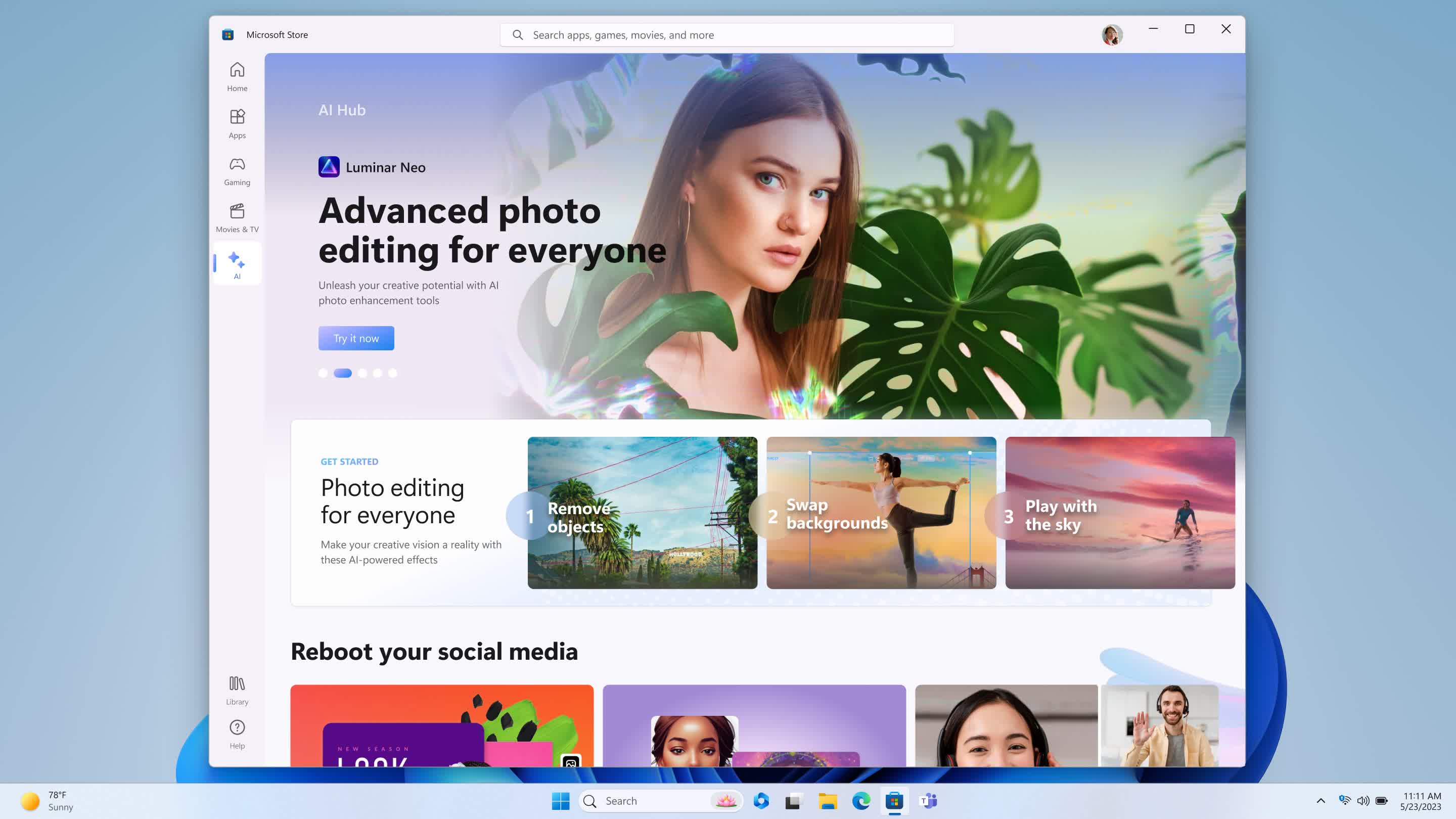The big picture: Microsoft has been adding OpenAI's technology into all of its software and services, guided by the belief that AI can transform the way people use productivity apps, web browsers, search engines, and various cloud services. That vision includes an AI-based personal digital assistant that will soon live inside Windows 11 as well as AI tweaks for apps like the Microsoft Store.
Back in 2015, Microsoft introduced Cortana alongside Windows 10 and promoted it as a digital personal assistant that could help you with many of your daily tasks. After an underwhelming reception and a few attempts to bring it to smart home devices, the company gave up on its initial ambitions and started neutering Cortana – first by decoupling it from Windows Search, then by stripping away some of its capabilities, and finally burying pieces of its digital corpse into Microsoft Teams, Outlook, Microsoft ToDo, and other productivity apps.
Fast forward to 2023, and Microsoft is announcing an AI-based personal assistant for Windows 11 that you'll be able to invoke from the taskbar. The Windows "Copilot" will work in a similar way to the one inside Office apps, Microsoft Edge, and GitHub – as a sidebar that can be easily called into action when you need help with a particular task.
The difference is that Windows Copilot will live alongside Bing Chat on the taskbar, and you'll be able to use it across all apps. Panos Panay, who currently presides over the Windows and Devices division, explains that Copilot makes "every user a power user, helping you take action, customize your settings, and seamlessly connect across your favorite apps."
In other words, this new tool should – at least in theory – make it easier for you to rewrite, summarize, or explain bits of content you're viewing inside an app, among other things. The interface is similar to that of Bing Chat, and you'll be able to ask questions that usually require switching the context to a web browser.
It's worth noting that Copilot isn't designed as a replacement for the search bar in Windows 11. Panay says it's more like a personal assistant that follows you around while you work across different apps. By contrast, the search bar is an isolated tool and the Bing Chat button is just a basic link that always takes you inside a web browser.
You'll also be able to ask Copilot for things like adjusting your settings so you can focus on the task at hand, or perform various other actions on your PC. Developers will be able to extend the functionality of Windows Copilot with the same plugins they're building for tools like Bing Chat and ChatGPT, and any future improvements to those will carry over to Windows Copilot.
Microsoft seems determined to infuse all of its software with AI smarts, and that includes the Microsoft Store in Windows 11. The company will be adding an "AI Hub" where you can find a curated list of AI-powered apps, and you'll soon be able to view an AI-generated summary of an app's user reviews. Developers will be able to use AI for generating search tags for their apps so they're easier to discover in Windows Store and Bing searches.
Many industry watchers were predicting that Microsoft would wait until Windows 12 to introduce more AI-based features. Now that Windows Copilot is coming into focus and the Microsoft Store is getting an AI makeover, it looks like the company is enthusiastically pushing ahead with the idea that AI is going to transform the way you do things in Windows.
As for how soon you can try Windows Copilot, Microsoft says it will start a public preview in June before rolling the feature to all Windows 11 users. It will be interesting to see if Copilot will be able to succeed where Cortana has failed.

